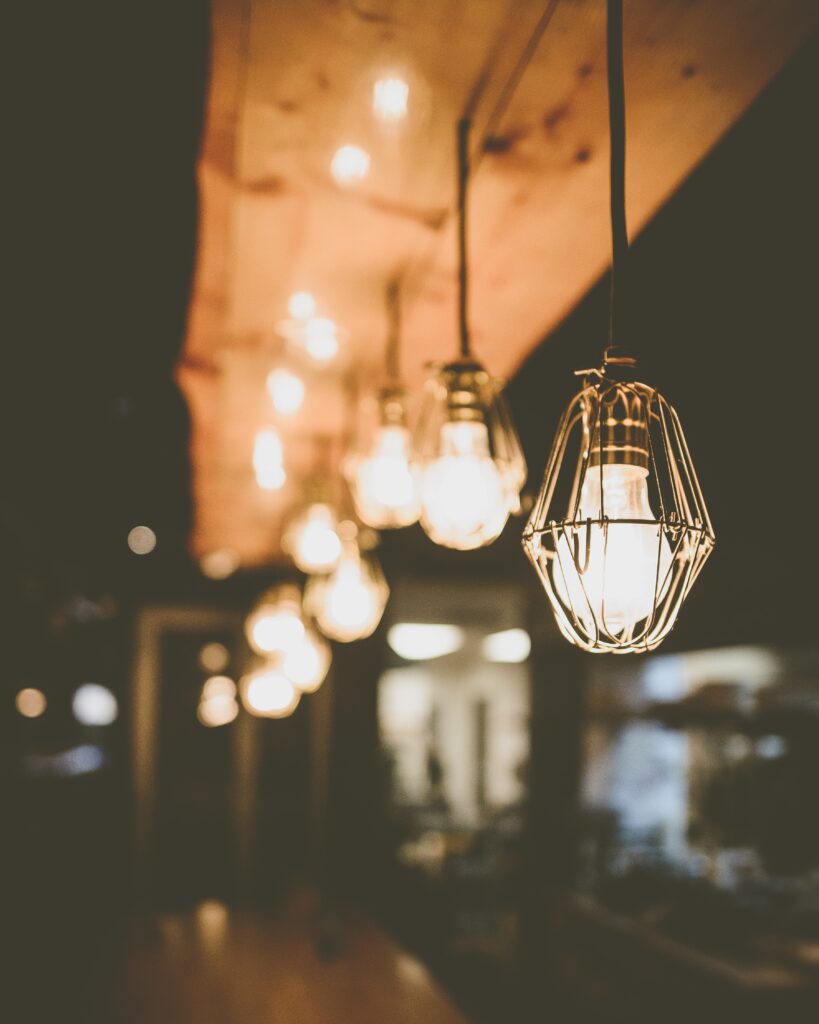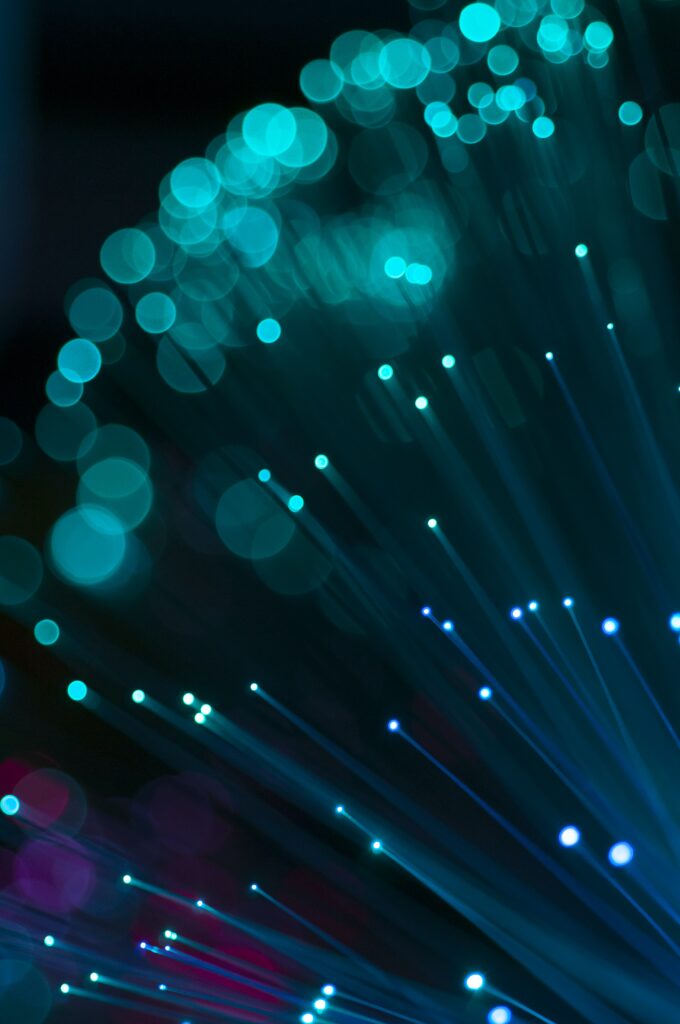If you’ve ever wondered whether smart light bulbs are compatible with your current light fixtures, you’re not alone. With the growing popularity of smart home technology, many people are curious about upgrading their lighting system but unsure if their fixtures can handle the change. In this article, we’ll explore the compatibility of smart light bulbs with existing fixtures, providing you with the information you need to make an informed decision for your home.

Overview of Smart Light Bulbs
Smart light bulbs are a revolutionary technology that have changed the way we illuminate our homes and spaces. These bulbs are capable of connecting to your smartphone or other smart devices, allowing you to control your lighting from anywhere. They offer a wide range of features and benefits, making them a popular choice for both homeowners and businesses.
Definition of Smart Light Bulbs
Smart light bulbs, also known as connected bulbs or Wi-Fi bulbs, are light bulbs that can be controlled remotely using a smartphone, tablet, or voice commands. These bulbs are equipped with built-in wireless technology, such as Wi-Fi or Bluetooth, which allows them to communicate with other devices in your home or office. By connecting to a smart home hub or using a dedicated app, you can easily adjust the brightness, color, and schedule of your smart light bulbs.
Features and Benefits of Smart Light Bulbs
Smart light bulbs come with a myriad of features and benefits that can enhance your lighting experience. Some common features include dimming capabilities, color changing options, and the ability to set schedules and timers. These features allow you to create the perfect ambiance for any occasion and adjust your lighting to suit your mood. Smart light bulbs also offer energy efficiency, saving you money on your electricity bills. Additionally, they can be integrated into a smart home system, allowing for seamless automation and control.
Types of Smart Light Bulbs
There are several types of smart light bulbs available on the market, each with its own unique features and functionalities. The most common types include:
-
Wi-Fi Bulbs: These bulbs connect directly to your existing Wi-Fi network and do not require a separate hub. They are easy to set up and can be controlled using a smartphone app.
-
Bluetooth Bulbs: These bulbs connect to your smartphone or other devices using Bluetooth technology. They have a shorter range compared to Wi-Fi bulbs but are still a convenient option for smaller spaces.
-
Zigbee/Z-Wave Bulbs: These bulbs require a separate hub or bridge to connect to your home network. They offer extended range and are often used in larger homes or businesses.
-
Color Changing Bulbs: These bulbs allow you to change the color of your lighting, creating a vibrant and customizable atmosphere. They are perfect for parties, events, or simply adding a touch of color to your living space.
Compatibility of Smart Light Bulbs
When considering the compatibility of smart light bulbs with your existing light fixtures, there are several factors to take into account. Ensuring that your smart light bulbs can work with your fixtures is important for a smooth installation and optimal performance.
Factors to Consider
Before purchasing smart light bulbs, consider the following factors:
-
Bulb Type and Base: Make sure you know the bulb type and base of your existing fixtures. Smart light bulbs come in various styles and fittings, such as A19, BR30, E26, and GU10. It is essential to ensure that the smart bulbs you choose are compatible with the existing sockets and fixtures.
-
Voltage Compatibility: Check the voltage requirements of your fixtures and ensure that the smart light bulbs you choose are compatible. Different countries and regions may have different voltage standards, so it is important to choose bulbs that match your electrical system.
-
Fixture Design: Consider the design and style of your existing fixtures. Some smart light bulbs may be larger or longer than traditional bulbs, so make sure they can physically fit inside your fixtures without any issues.
Connectivity Options
Smart light bulbs offer various connectivity options, such as Wi-Fi, Bluetooth, Zigbee, or Z-Wave. Before purchasing, ensure that the smart bulbs you choose are compatible with the connectivity options available in your home. For example, if you already have a smart home hub that relies on Zigbee, make sure the bulbs you select can connect to this protocol.
Power Requirements
Another important consideration is the power requirements of your existing fixtures. Some smart light bulbs have specific power requirements, such as a minimum or maximum wattage. Ensure that your fixtures can accommodate the power demands of the smart bulbs you choose.
Dimming and Color Changing
If you have fixtures that currently support dimming or color changing, it is essential to choose smart light bulbs that are compatible with these features. Not all smart bulbs offer dimming capabilities, and some may only provide limited color options. Review the specifications of the smart bulbs to ensure they meet your lighting preferences.
Form Factor and Size
The form factor and size of smart light bulbs can vary. Some bulbs may have a larger physical size or a different shape compared to traditional bulbs. Before making a purchase, make sure the smart bulbs will fit seamlessly into your existing fixtures without causing any functional or aesthetic issues.

Types of Existing Light Fixtures
In order to determine compatibility, it is important to understand the different types of existing light fixtures commonly found in homes and businesses. Here are some of the most common types:
Incandescent Fixtures
Incandescent fixtures use traditional incandescent bulbs and are the most common type of lighting found in homes. These fixtures are compatible with a wide range of smart light bulbs, making it easy to upgrade your existing lighting to smart technology.
Fluorescent Fixtures
Fluorescent fixtures use fluorescent tubes to produce light. They are often found in offices, garages, and commercial spaces. While smart light bulbs specifically designed for fluorescent fixtures are less common, there are options available that can be used with the appropriate adapters or conversion kits.
LED Fixtures
LED fixtures are becoming increasingly popular due to their energy efficiency and long lifespan. These fixtures use integrated LED bulbs rather than traditional screw-in bulbs. Many smart light bulb manufacturers offer LED-specific smart bulbs, ensuring compatibility and optimal performance.
Halogen Fixtures
Halogen fixtures use halogen bulbs and are known for their high-quality, crisp light output. Most smart light bulbs are compatible with halogen fixtures, allowing you to create a smart lighting experience without sacrificing the quality of your existing fixtures.
Chandeliers and Pendant Lights
Chandeliers and pendant lights are decorative fixtures that add elegance and style to any space. When considering smart light bulbs for chandeliers and pendant lights, it is important to ensure that the bulbs are compatible with the specific base or socket type used in these fixtures.
Track Lighting
Track lighting consists of a series of lights mounted on a track, allowing for adjustable and directional illumination. Many smart light bulb options are compatible with track lighting, making it easy to upgrade your existing setup without the need for extensive rewiring.
Ceiling Fans with Light Kits
Ceiling fans with light kits often have integrated lighting for added functionality. Smart light bulbs for ceiling fans should be compatible with both the socket type and any existing dimming functionality.
Wall Sconces
Wall sconces are mounted on the wall and provide accent lighting. When choosing smart light bulbs for wall sconces, consider the size and shape of the bulbs to ensure they fit properly within the fixture.
Recessed Lighting
Recessed lighting, also known as can lights or downlights, is installed directly into the ceiling or wall. There are smart light bulb options specifically designed for recessed lighting, ensuring a proper fit and optimal performance.
Outdoor Fixtures
Outdoor fixtures, such as floodlights and garden lights, require smart light bulbs that are specifically designed for outdoor use. These bulbs are built to withstand different weather conditions and provide reliable and smart-controlled lighting in outdoor spaces.
Smart Light Bulb Compatibility by Fixture Type
To ensure compatibility, here is a breakdown of the compatibility of smart light bulbs with different fixture types:
Incandescent Fixtures
Smart light bulbs are generally compatible with incandescent fixtures, as these fixtures use standard screw-in bulbs that are widely supported by smart bulb manufacturers.
Fluorescent Fixtures
While smart light bulbs specifically designed for fluorescent fixtures are less common, there are options available that can be used with the appropriate adapters or conversion kits. It is important to research and consult with professionals to ensure proper compatibility and functionality.
LED Fixtures
Most smart light bulb manufacturers offer LED-specific smart bulbs that are compatible with existing LED fixtures. However, it is still important to review the specifications and requirements of the smart bulbs to ensure compatibility with your specific LED fixtures.
Halogen Fixtures
Smart light bulbs are generally compatible with halogen fixtures, allowing you to easily upgrade your existing lighting to smart technology without the need for extensive modifications.
Chandeliers and Pendant Lights
Compatibility with chandeliers and pendant lights depends on the bulb base or socket type used in these fixtures. It is crucial to ensure that the smart bulbs you choose are compatible with the specific base or socket type.
Track Lighting
Many smart light bulb options are compatible with track lighting, making it easy to add smart functionality to your existing setup.
Ceiling Fans with Light Kits
Smart light bulbs for ceiling fans with light kits should be compatible with both the socket type and any existing dimming functionality. Consider the compatibility requirements of the specific ceiling fan before making a purchase.
Wall Sconces
Smart light bulbs for wall sconces should be selected based on the size, shape, and compatibility with the specific requirements of the fixture.
Recessed Lighting
There are smart light bulb options specifically designed for recessed lighting that offer optimal compatibility and performance.
Outdoor Fixtures
Smart light bulbs for outdoor fixtures should be specifically designed for outdoor use to ensure proper compatibility and durability in various weather conditions.

Methods to Determine Compatibility
To determine the compatibility of smart light bulbs with your existing fixtures, consider the following methods:
Reading the Packaging and Specifications
Review the packaging and specifications of the smart light bulbs to ensure that they meet the requirements of your existing fixtures. Pay attention to details such as bulb type, base type, voltage compatibility, and any specific compatibility notes provided by the manufacturer.
Reviewing Manufacturer Recommendations
Check the manufacturer’s website or product documentation for any recommended fixture types or specific compatibility information. Manufacturers often provide compatibility guides and recommendations to help users choose the right smart light bulbs for their fixtures.
Consulting Professional Electricians
If you are unsure about the compatibility of smart light bulbs with your existing fixtures, consider consulting with a professional electrician. They can provide expert advice and guidance based on their knowledge and experience.
Online Research and Forums
Explore online resources, forums, and communities dedicated to smart home technology. These platforms often have discussions and experiences shared by users who have already tried and tested different smart light bulbs with various fixtures. This can help you gather valuable insights and recommendations to make an informed decision.
Compatibility Tools and Apps
Use compatibility tools or apps provided by the smart light bulb manufacturers. These tools can help you determine if a specific smart light bulb is compatible with your existing fixtures. They may require you to input the details of your fixtures or scan barcodes/QR codes on the packaging to identify compatibility.
Common Issues and Solutions
While smart light bulbs offer numerous benefits and features, there may be some common issues that you may encounter. Here are a few common issues and their respective solutions:
Bulb Size and Fit
Some smart light bulbs may have a larger physical size or a different shape compared to traditional bulbs. If the smart bulb does not fit properly into your existing fixtures, consider using adapters or selecting alternative smart bulbs that are compatible with your specific fixture design.
Lack of Dimming or Color Changing
If your existing fixtures support dimming or color changing, but you are unable to access these features with your smart light bulbs, make sure you have chosen bulbs that are specifically designed to offer dimming or color-changing functionality. Review the specifications and compatibility notes provided by the manufacturer.
Inconsistent Connectivity
If you experience inconsistent connectivity or connectivity issues with your smart light bulbs, ensure that they are within the range of your Wi-Fi or Bluetooth network. Consider optimizing your network setup or using a Wi-Fi range extender to enhance the connectivity reliability.
Power Compatibility Issues
Power compatibility issues may arise if the power requirements of the smart light bulbs do not match those of your existing fixtures. Ensure that the smart bulbs are compatible with the voltage and wattage specifications of your fixtures to avoid any power compatibility issues.
Excessive Heat Generation
Some smart light bulbs may generate more heat compared to traditional bulbs. Ensure that your fixtures have adequate ventilation and are designed to handle the heat generated by the smart bulbs. Avoid using smart bulbs in enclosed fixtures that may trap heat.
Compatibility with Smart Home Systems
If you are using a smart home system or hub to control your smart light bulbs, ensure that the bulbs are compatible with the specific system or hub. Some systems may require proprietary protocols or dedicated compatibility, so it is important to verify compatibility before making a purchase.
Tips for Ensuring Compatibility
To ensure compatibility and a seamless installation experience, consider the following tips:
Understanding Your Existing Fixtures
Gain a thorough understanding of your existing fixtures, including the type, size, and specifications. This will help you choose smart light bulbs that are compatible with your fixtures.
Research and Review Product Information
Before purchasing smart light bulbs, thoroughly research and review the product information provided by the manufacturers. Pay close attention to compatibility notes, specifications, and recommendations.
Consider Smart Home Integration
If you have a smart home system or hub, consider choosing smart light bulbs that are compatible with your system. This will allow for seamless integration and control.
Seek Professional Assistance
If you are unsure about the compatibility of smart light bulbs with your existing fixtures, consider seeking advice from a professional electrician. They can provide expert guidance based on their knowledge and experience.
Utilize Compatibility Guides and Resources
Make use of compatibility guides and resources provided by smart light bulb manufacturers. These guides can help you identify compatible bulbs based on your specific fixture type and requirements.
Benefits of Using Smart Light Bulbs
Using smart light bulbs in your home or business offers a wide range of benefits. These benefits include:
Energy Efficiency and Cost Savings
Smart light bulbs are designed to be energy-efficient, consuming less electricity compared to traditional bulbs. This helps reduce your energy bills and contributes to environmental sustainability.
Convenience and Control
With smart light bulbs, you can control the lighting in your home or office from anywhere using your smartphone or voice commands. This offers convenience and flexibility, allowing you to easily adjust the brightness, color, and scheduling of your lighting.
Enhanced Lighting Features
Smart light bulbs offer a range of enhanced lighting features, such as dimming capabilities and color changing options. These features allow you to create the perfect ambiance for any occasion and customize your lighting to suit your preferences.
Smart Home Integration
Smart light bulbs can be integrated into existing smart home systems or hubs, allowing for seamless automation and control. You can synchronize your lighting with other smart devices and create personalized lighting scenes and routines.
Environmental Sustainability
By using energy-efficient smart light bulbs, you contribute to environmental sustainability. These bulbs consume less energy and have a longer lifespan, reducing the need for frequent replacements and minimizing waste.
Conclusion
Smart light bulbs offer a convenient and versatile solution for controlling and enhancing your lighting experience. With their wide range of features and benefits, they are a valuable addition to any home or business. By understanding the compatibility requirements, considering the types of existing fixtures, and utilizing the appropriate resources, you can ensure a seamless integration of smart light bulbs into your lighting setup. Enjoy the convenience, energy efficiency, and enhanced control that smart light bulbs have to offer, and transform the way you illuminate your space.




